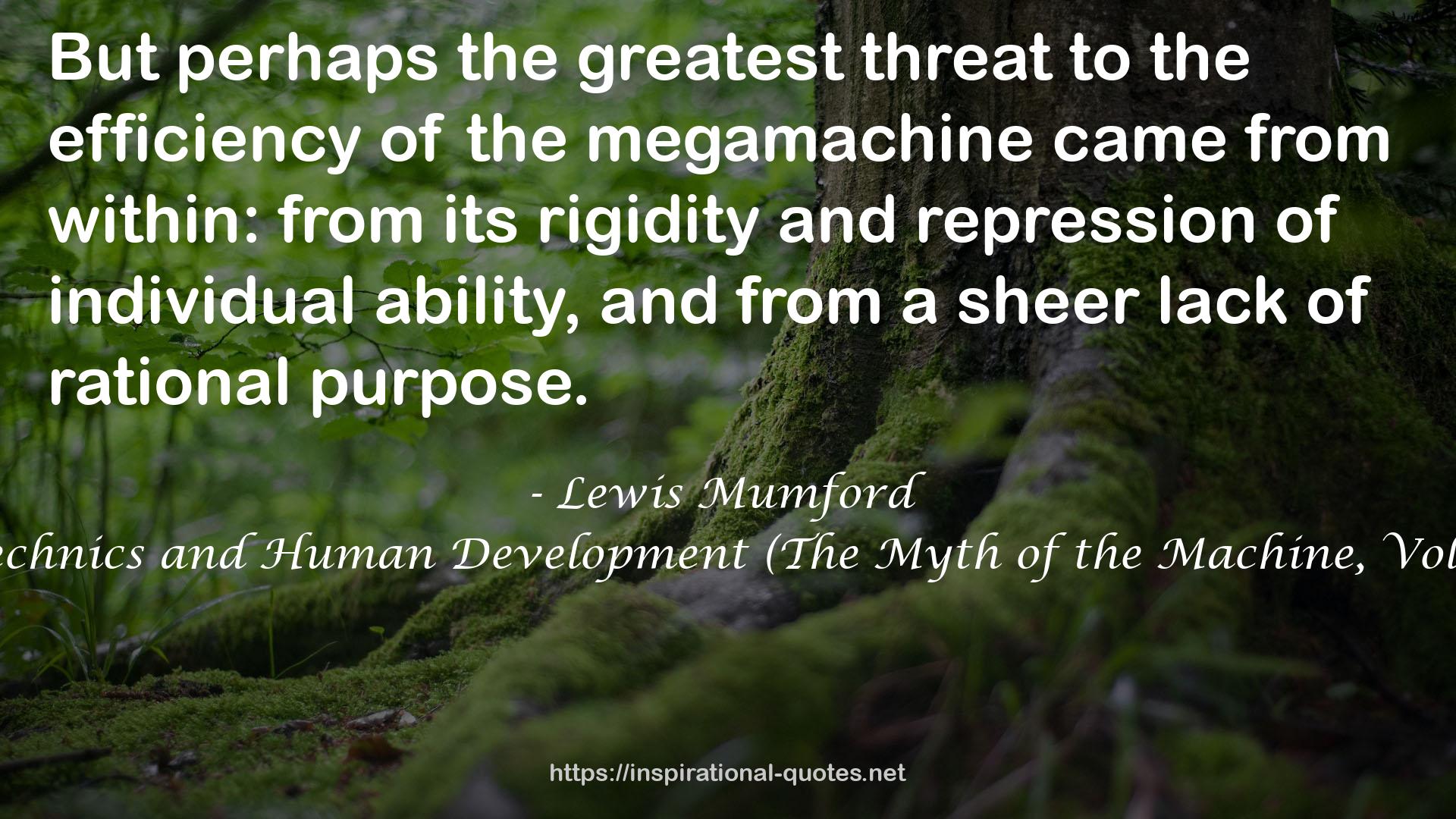125
" Under democratic technics, the only occupation that demanded a lifetime's attention was that of becoming a full human being, able to perform his biological role and to take his share in the social life of the community, absorbing and transmitting the human tradition, deliberately bringing the ceremonies he performed, the food he planted, the images he shaped, the utensils he carved or painted to a higher degree of esthetic perfection. Every part of work was life-work. This archaic attitude toward work was widespread; and despite all the efforts Western man has made, since the sixteenth century, to corrupt and destroy this basic culture, it still lingered in peasant communities, as well as in the surviving tribal enclaves that were intact at the beginning of the present century. Franz Boas noted the high regard for craftsmanship among supposedly primitive peoples; while Malinowski emphasized the same attitude among his near-neolithic 'Coral Gardeners.'
Machine culture in its original servile form did not share these life-enhancing propensities: it centered, not on the worker and his life, but on the product, the system of production, and the material or pecuniary gains therefrom. Whether kept in operation by the taskmaster's whip or by the inexorable progression of today's assembly line, the processes derived from the megamachine worked for speed, uniformity, standardization, quantification. What effect these objectives had upon the worker or upon the life that remained to him when the workday was over was no concern of those who commanded these mechanical operations. The compulsions produced by this system were more insidious than outright slavery, but as with slavery, they finally debased the controllers as well as the working force so controlled. "
― Lewis Mumford , Technics and Human Development (The Myth of the Machine, Vol 1)
126
" The hostility that the Jews and the early Christians constantly evoked in great States was a gauge of the frustration that mere military power and 'absolute' political authority experienced in dealing with a small community held together by a traditional common faith, inviolable rituals, and rational ideals. For power cannot long prevail unless those upon whom it is imposed have reason to respect it and conform to it. Small, seemingly helpless organizations that have an inner coherence and a mind of their own have in the long run often proved more effective in overcoming arbitrary power than the biggest military units-if only because they are so difficult to pin down and confront. This explains the efforts of sovereign states all through history to curb and suppress such organizations, whether they were mystery cults, friendly societies, churches, guilds, universities, or trade unions. And in turn, that antagonism suggests the way in which the modern megamachine may in future be curbed, and brought under some measure of rational authority and democratic control. "
― Lewis Mumford , Technics and Human Development (The Myth of the Machine, Vol 1)
127
" Dio Chrysostom (A.D. 40-115) in his first discourse on kingship, did not hesitate to point the lesson. "The good king," he wrote, "also believes it to be due to his position to have the larger portion, not of wealth, but of painstaking care and anxieties; hence he is actually more fond of toil than many are of pleasure or wealth. For he knows that pleasure, in addition to the general harm it does to those who constantly indulge there, also quickly renders them incapable of pleasure, whereas toil besides conferring other benefits, continually increases a man's capacity for toil. "
― Lewis Mumford , Technics and Human Development (The Myth of the Machine, Vol 1)

